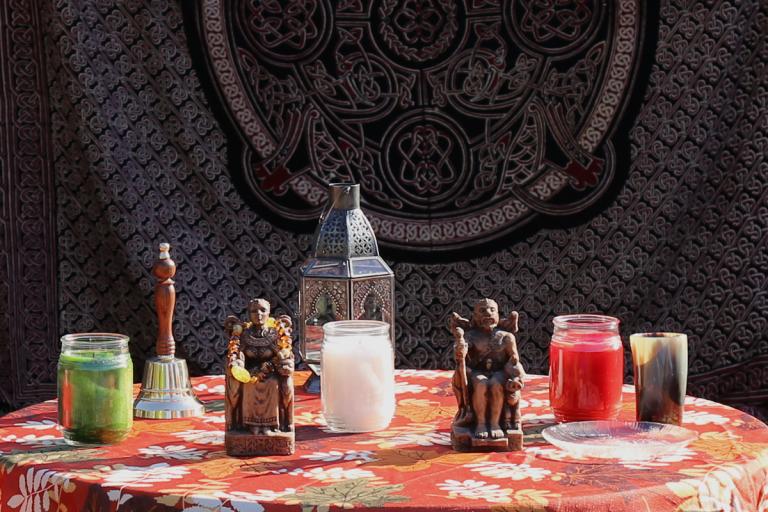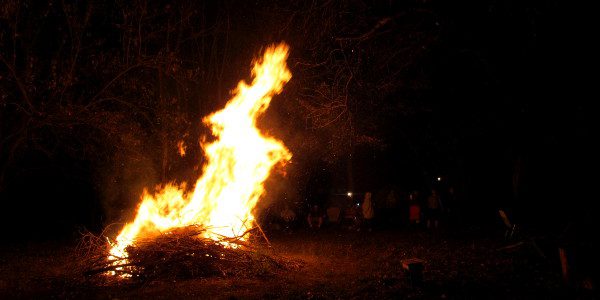 The tremendous growth in Paganism over the past 20 years or so has largely come through solitary practitioners. But as our numbers have grown, and as the internet and social media have made finding each other easier, the time is ripe for growth in new Pagan groups. Some of these groups will be extensions of existing traditions, but others will be formed on a blank slate with only the wisdom and experience of their founding members to guide them.
The tremendous growth in Paganism over the past 20 years or so has largely come through solitary practitioners. But as our numbers have grown, and as the internet and social media have made finding each other easier, the time is ripe for growth in new Pagan groups. Some of these groups will be extensions of existing traditions, but others will be formed on a blank slate with only the wisdom and experience of their founding members to guide them.
Last year I wrote about the generic structure of religious groups. In this post, I want to talk about the two inner circles: the core principles and values, and especially the mission and vision.
Pagan groups are entities on their own. A group – especially a religious group – is more than a collection of individuals. It has its own history, its own traditions, its own reasons for being. While the identity of any group will be influenced – perhaps modestly, perhaps strongly – by its leaders, if a group doesn’t have an identity that is ultimately separate from its leaders, it probably isn’t a religious order but rather an extension of the leaders’ egos.
It’s important for a group to formally say what it is and why it exists, whether that’s done through by-laws, a mission statement, or both. But what the group actually does is more important. If I want to know what a group really is all about I’m not going to read their by-laws, I’m going to see what’s on their Facebook page.
Like all living things, groups will change over time. Some of this change will be intentional, but some will come through evolution. Good by-laws set boundaries and processes for change, while a mission statement keeps the purpose of the group front and center.
Pagan groups exist to serve the Gods. Let’s not get into yet another hard polytheist / soft polytheist / humanist wrestling match. However you see the Gods, one of the purposes of a Pagan group is to serve Them (and if you think serving means being subservient, please consult a dictionary and then grow the hell up). Service – to the Gods, to Nature, and to our fellow humans – is honorable and necessary work.
We serve the Gods by performing Their rites, with worship and sacrifice and offerings. Some say the Gods are fed by our worship, while others say the Gods need nothing. Regardless, worship benefits the worshipers by bringing us into close communion with the Gods and reminding us of Their virtues and Their values.
 And that’s important, because the other way we serve the Gods is by doing Their work. We serve Smith Gods when we make beautiful and useful things. We serve Gods of Justice when we work to protect the poor and vulnerable from the rich and powerful. We serve Gods of Nature when we honor and care for the Earth and all her creatures and ecosystems. Whether that work originates with our own ideas or whether it is requested or dictated by the Gods is another matter for another time, but it is all the work of the Gods.
And that’s important, because the other way we serve the Gods is by doing Their work. We serve Smith Gods when we make beautiful and useful things. We serve Gods of Justice when we work to protect the poor and vulnerable from the rich and powerful. We serve Gods of Nature when we honor and care for the Earth and all her creatures and ecosystems. Whether that work originates with our own ideas or whether it is requested or dictated by the Gods is another matter for another time, but it is all the work of the Gods.
Pagan groups exist to serve their members. Religious groups – in any tradition – are not restaurants or auto repair shops and we should not approach them as consumers. Yet good Pagan groups are good in part because they serve their members. Groups also provide opportunities for its members to serve, and through service for us to be a part of something bigger than ourselves.
Pagan groups provide teaching and training. Sometimes this means an elder sharing their knowledge and wisdom. Sometimes it means bringing in an outside teacher. And other times it means a group of folks working through a book or a project on their own and figuring it out as they go.
Groups provide opportunities for members to learn and grow. New members may start out simply participating in ritual. Later they take a small part, then a large part, then they help plan a ritual, and finally they’re ready to lead a ritual on their own. The same process works with service projects, interfaith and intergroup relations, and organizational leadership.
Groups can provide rites of passage, including initiations. Our mainstream society has forgotten the value of these milestone and transformative events, but most Pagans understand their benefit.
Good Pagan groups build vibrant, mutually supportive communities. Work together for long enough on things that are important and eventually you’re no longer just co-religionists, you’re also friends – friends who help each other and look out for each other in the mundane world. As our wider society moves deeper and deeper into Tower Time, it becomes more and more important for us to gather our tribes and form alliances with others.
Pagan groups exist to serve their wider communities. As with serving the Gods, this element has an otherworld component and a this-world component. Some groups (like Denton CUUPS) make providing opportunities for public ritual one of our primary goals. But even traditionally closed groups like Wiccan covens can hold occasional open events.
Groups also provide an opportunity for this-world service. Denton CUUPS does regular roadside cleanups, and through the Denton UU Fellowship we provide opportunities for wider service in more areas than our small group has resources to support. Different groups can find what work matches their unique skills and opportunities.
Each group will mix and match these elements to achieve their goals: the structure of a polytheist priesthood is going to look very different from the structure of a coven of traditional witches, and both will be different from a CUUPS chapter. The key for newly forming groups is to agree on its core principles and values, and then create a mission and vision that support them.

















